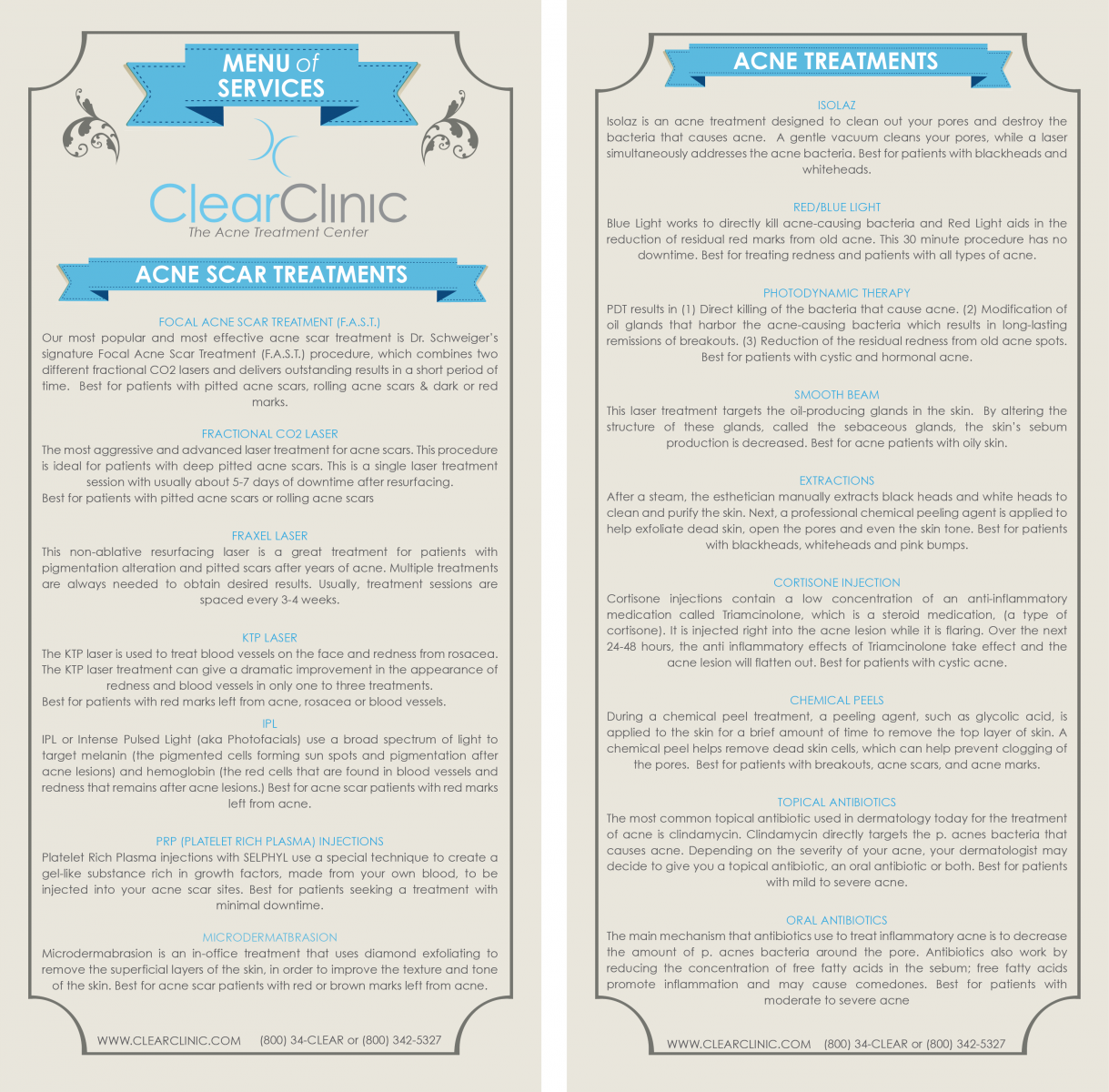FAQ About Acne
 Do hormones play a part of the development of acne?
Do hormones play a part of the development of acne?
Yes, sex related hormones called “androgens” can contribute to the development of acne. In particular, androgens can effect the “sebum” (a.k.a. skin oil) production. Each hair follicle on your body has an associated “sebaceous gland’ (a.k.a. oil gland). These oil glands were put on our body to help us. They make sebum, which naturally protects and hydrates the skin. These oil-producing glands are also sensitive and responsive to androgens and when the body has an excess of androgens it’s like giving the oil glands a green light to produce more sebum. It’s when the skin sebum levels go up that you run into problems. Sebum is like a candy for the P. acnes bacteria; they eat it and grow off it. As sebum production increases, so does the proliferation of P. acnes bacteria and in turn acne breakouts. This is why one of the ways we treat acne is trying to decrease skin sebum levels.
Does acne run in families (is it genetic)?
A gene causing acne has not yet been found, but evidence shows us that acne likely has some genetic predilection. We find patients with a family history of severe acne are more likely to have severe acne themselves. But just because your mom or dad had acne, does not mean that you have to just accept fate. There are many actions to take to treat and manage acne breakouts regardless of family history.
Questions submitted by Clear Clinic patients for the upcoming ‘Clear Answers’ book.

